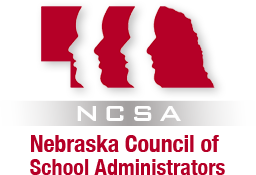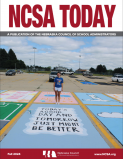Ensuring Equitable Assessments for All Students
By Cognia
The COVID-19 pandemic halted many states’ annual testing programs in spring 2020. As a result, states and school districts are relying on interim assessments to better inform needed changes in instruction and address learner readiness.
Data you can rely on plays an important part in planning and sustaining continuous improvement. Cognia™ works with schools, systems, and large education agencies to deliver reliable assessment solutions and support for teachers, to inform instruction and improve learning. Like you, we are passionate about helping all students succeed, no matter where they are learning.
Balanced assessments are an essential part of any continuous improvement system. Whether they are developed at the state level, locally, or in partnership with a third party, it is important to seek an independent review of how well your assessments are evaluating student learning. Increasingly, state and district leaders are turning to Cognia to determine whether assessments and test items are equitable, and whether they provide valid information about how well students are making progress toward standards. District officials want to be sure that the data they collect from their assessments are reliable and accurately reflect what is going on in the classroom.
Having expanded beyond its roots in accreditation more than a century ago, Cognia now provides accreditation and STEM certification, assessment, professional learning, and improvement services to help schools with their school quality and assessment needs within a framework of continuous improvement. Some institutions get assistance with the entire improvement process, others engage in parts of the process, often to verify assumptions or deepen understanding of their existing data or learning environments with help from Cognia experts and resources. Cognia’s classroom observation tool, climate and culture surveys, strategic planning tool, and interim and formative assessment tools can help you identify needs and target improvement no matter where your institution is in your improvement journey.
“As a Cognia Network member, access to the expertise and resources in support of continuous improvement is valued,” said Dr. Melanie Mueller director of Research, Assessment, and Evaluation for Papillion-La Vista School District. “As one example, the new i3 rubric allowed our district to collaborate and evaluate our continuous improvement journey across each performance standard and our district’s progress from engagement to embeddedness for today, tomorrow, and our future.”
The result of the merger of AdvancED and Measured Progress, Cognia was formed to bridge the gap between school evaluation and student assessment. Cognia’s Assessment Review Service helps educators evaluate locally created assessments to answer these questions:
- Do the assessments contain inequitable items?
- Are the assessments collecting the right evidence that supports what educators think is happening?
- If the evidence conflicts with their expectations, why?
Specifically, the reviews help determine if tests are free of racial, gender, and socio-economical bias.
Equity and Universal Design
Cognia’s expert reviewers identify test items that are accessible and not accessible to all students. They help educators recognize the connection of test items to curriculum and instruction by emphasizing that assessment items need to reflect learning outcomes and be grade-appropriate.
The reviews are based on five key components of a high-quality assessment: test design and structure, stimuli, test items, item alignment to standards, and scoring materials.
The review flags items that expose students to stereotypical information and micro-aggression.
Specifically, the reviews help determine if tests are free of racial, gender, and socio-economical bias. The review flags items that expose students to stereotypical information and micro-aggression. Such items lower efficacy and create unintended emotional distraction. The review also evaluates whether the assessments are readable and accessible for students with disabilities and learning exceptionalities and for non-native English speakers—all of whom may not be strong readers but receive no special accommodations.
Cognia helps ensure that educators understand what equitable assessments look like and are familiar with the processes that help continually refine their assessment system. By selecting examples directly from the district’s assessments and demonstrating how to improve or repair items, administrators and teachers learn how to adjust their assessments. Item-by-item feedback helps educators make immediate improvements to existing assessments and ensure quality in those being developed or revised.
Common challenges
Common themes emerge across many districts’ assessments. Reviewers often find:
- Items that came from assessment banks aligned to previous standards
- Unnecessary use of male pronouns “he/him” in questions that refer to occupations in health science and other fields
- Subject matter that revives trauma, as when items refer to recent hurricanes or floods that may remind a student of personal loss or danger
The best testing practice also avoids mention of racial issues. In all subject areas, those issues are best raised in classroom discussions where there is a teacher to mediate the discussion.
The review also evaluates whether the assessments are readable and accessible for students with disabilities and learning exceptionalities and for non-native English speakers—all of whom may not be strong readers but receive no special accommodations.
Finally, reviewers often find that educators do not understand Universal Design for Assessment and that scoring materials provide insufficient information to guide the teachers to consistently score student work.
Interim assessments are especially important now to help inform instruction and to determine how to help students make up for lost learning due to the pandemic. To be valid and equitable, those assessments need to take into account the considerations we have described.
From our experience, writing good test items starts by thinking about the purpose of the assessment and what evidence of learning the assessment is trying to elicit. This backwards design process focuses on revealing student misconceptions and identifying whether there is a gap in understanding or a gap in the curriculum or instruction.
Invested in your success
Beyond compliance, Cognia helps state and school leaders think strategically and problem solve. We feature articles about how practitioners work with education leaders inside and beyond the Cognia network at cognia.org/source. Interested in learning more about what makes a strong assessment item? Download the infographic.
Cognia has the knowledge to help schools improve. As a global nonprofit working in over 80 countries, our 36,000 institutions serve and support nearly 25 million students and 5 million educators every day. In 2020 Cognia marks 125 years of commitment to guiding and supporting excellence in education through accreditation, assessment, and continuous improvement.
Cognia is an undeniable force for enhancing schools, engaging students, and driving better outcomes for all. Learn more at cognia.org.
For more information about partnering with Cognia for your continuous improvement or assessment needs, contact Shannon Vogler at 1-888-413-3669 ext. 5801 or email Shannon.vogler@cognia.org.
























